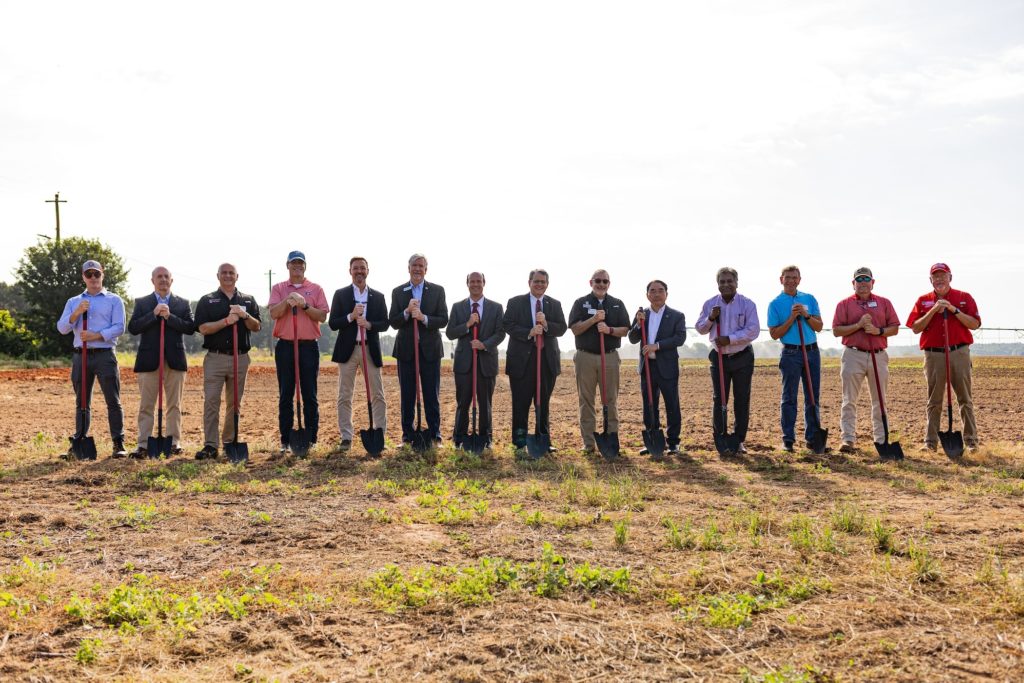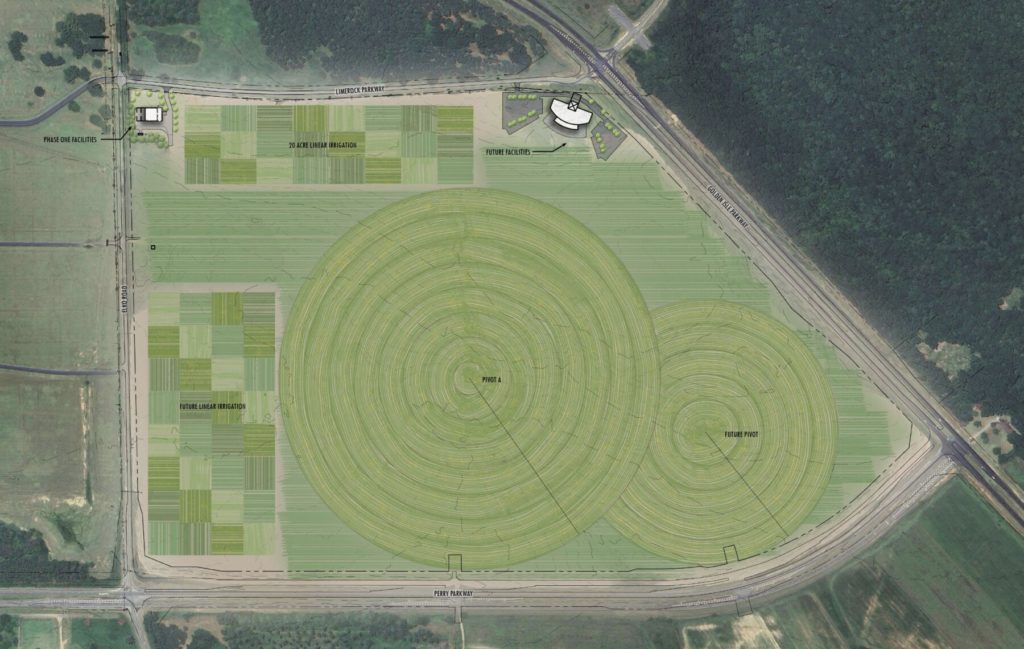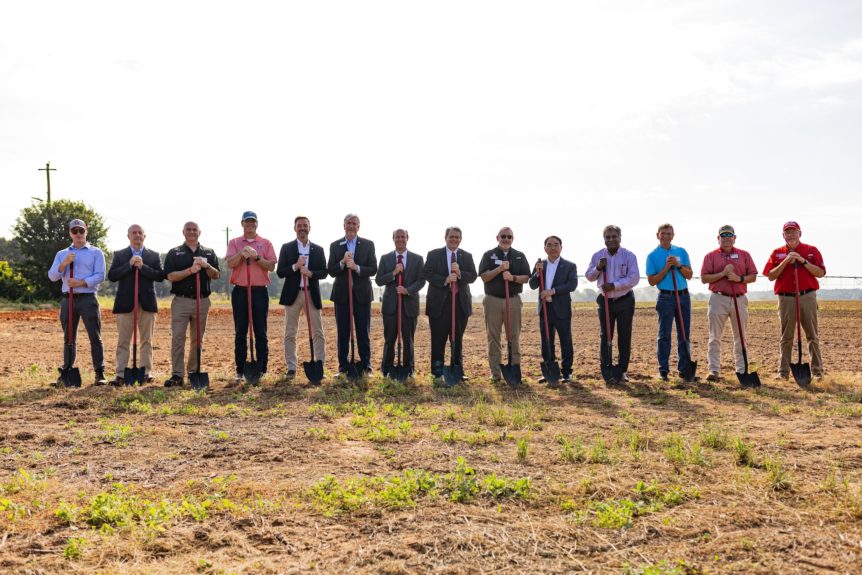
Photo by Sean Montgomery
By Clint Thompson
Editor’s Note: This is the second article in a series featuring land-grant universities and technological advancements.
The University of Georgia (UGA) has invested time, money and manpower to become a breeding ground for ag innovation. Whether it is through the Institute for Integrative Precision Agriculture (IIPA), which launched in 2022, or the UGA Grand Farm, which broke ground in May, ag technologies are at the forefront of UGA research.
Embracing AI

At the center of that research is George Vellidis, UGA professor and director of the UGA IIPA. He recognizes the need for the agricultural community to embrace artificial intelligence (AI) as the future of agriculture. Though AI will not replace the vital human element on the farm, it will make agricultural practices more efficient and sustainable.
“My expectation is that we will be using AI to assist with decision making in many aspects of agriculture,” Vellidis said. “The combination of computer vision, powerful software and high processing speeds will allow us to do tasks that humans are just not able to do effectively.”
The Grand Farm
The UGA Grand Farm (ugagrandfarm.caes.uga.edu) is an initiative based out of North Dakota. It is an example of agriculture and technology merging together to create a more sustainable future for farmers who are contending with rising input costs and low commodity prices. The partnership between Grand Farm and the College of Agriculture and Environmental Sciences established a collaborative hub to address agricultural challenges pertinent to the Southeast. Sensor technology, irrigation technology and robotics are currently under the research microscope at the 250-acre site in Perry, Georgia.
“It is an exciting opportunity to attract established and startup companies who wish to evaluate and develop their technologies, techniques and knowledge base to address our unique problems and challenges,” Vellidis said. “The UGA Grand Farm offers these partners a well-managed testbed of southern crops with an experienced staff who can execute some of the field studies needed by the partners so that they can focus on agtech development and commercialization.”
Vellidis became director of the IIPA in November 2024. The institute’s intention is to leverage faculty knowledge and industry to broaden research that is required to feed and clothe a growing population. IIPA helps attract companies to UGA Grand Farm that are based in the precision ag domain, and its faculty conducts collaborative research with these companies.
Collaboration is Key
IIPA faculty are also collaborating with colleagues from other UGA institutes, departments and schools to address some of the key problems identified by stakeholders during the inaugural Integrative Precision Agriculture Conference held in 2023. IIPA has provided UGA faculty teams with $1.5 million in seed grants over the last three years to jumpstart the research.
AI’s impact is also felt academically. The university established the Institute for Artificial Intelligence in 2008. Several new faculty were added across the university in an AI faculty cluster hire initiated by former Provost S. Jack Hu. The Institute is both a research and instructional unit. It administers the bachelor of arts in cognitive science, the master of science in artificial intelligence and the doctor of philosophy in artificial intelligence.
Institute faculty come from multiple departments and academic units at UGA, including agriculture, computer science, philosophy, psychology, linguistics and engineering. Faculty from the AI Institute and the IIPA are collaborating to apply AI to intractable agricultural problems, Vellidis noted.










